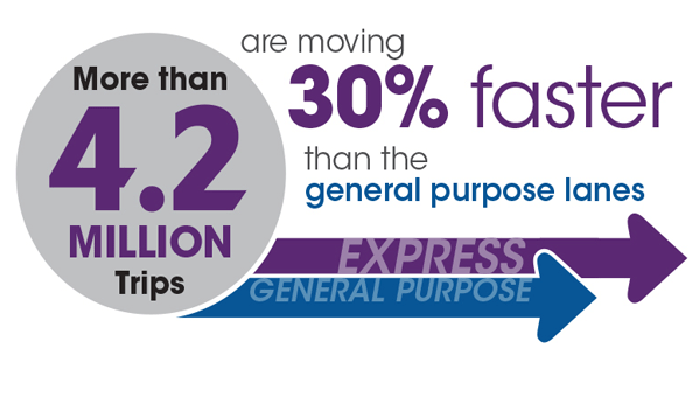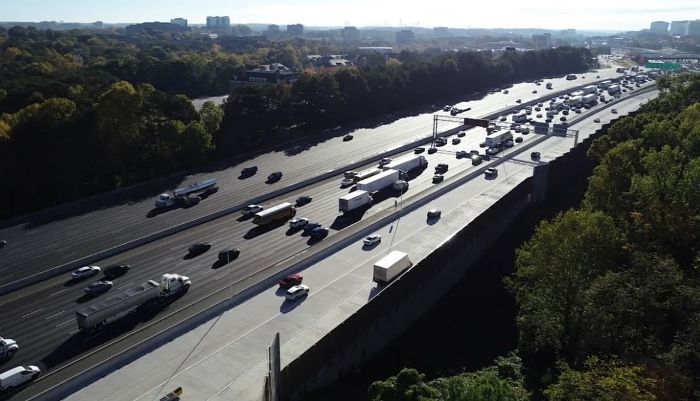A project to deploy dynamically-priced Express Lanes on the Northwest Corridor around the greater Atlanta metropolitan region in Georgia has been deemed an ‘unprecedented success’ after its first few months of operation, with benefits for all road users.
The Georgia Department of Transportation (GDOT) has issued a recent usage report for the Northwest Corridor (NWC) Express Lanes that opened in September 2018, extending along I-75 and I-575 in Cobb and Cherokee counties and including 29.7 miles (47.8km) of tolled reversible express lanes. In just eight months of operation, more than 4.2 million trips have been registered in the new lanes, posting travel speeds 30% faster than the general-purpose lanes. As a result, the corridor’s rush hour has been reduced by more than one hour during both the morning and evening commutes, benefiting both motorists using the Peach Pass transponder and drivers in the general-purpose lanes.

The express lanes use a dynamic pricing system that increases the price during peak travel times and decreases fees during off-peak times in an effort to ensure reliable trip times. Users of the general-purpose lanes adjacent to the express lanes have also benefitted. In April 2018 (before NWC opening), the average speed on I-75 northbound between I-285 and I-575 at rush hour’s peak was 20mph (32km/h). In April 2019 (after NWC opening) the average speed doubled to as much as 40mph (64km/h). Benefits of express lanes include more reliable trip times, more consistent travel speeds, and increased transit opportunities, all of which improve air quality. According to the US Department of Transportation, tailpipe exhaust is expected to be reduced by about 23.8 tons a year as 2.87 billion gallons of fuel are saved by reducing the waste of engines idling in traffic congestion.
The Georgia Express Lanes network will provide more reliable trip times throughout the Atlanta region for those traveling to and from work, sporting events, concerts and home. Following the success of the NWC project, GDOT is planning four more express lanes schemes as part of the Major Mobility Investment Program (MMIP), a US$11bn investment in statewide transportation infrastructure. Once completed, the growing metropolitan Atlanta region will see a more connected transportation network benefiting both motorists and transit riders.

“The Northwest Corridor Express Lanes has created compelling new commute options for motorists and transit users, who often described them as ‘life changing’,” said GDOT commissioner, Russell R McMurry. “The project has also improved the quality of life for thousands who regularly travel the corridor, giving them time back in their day.”
Connie Engel, vice chairman of the Cumberland Community Improvement District, commented, “The Northwest Corridor Express Lanes have brought significant congestion relief in our area and have shortened the commute times dramatically. We think the addition of other express lanes that are under consideration in the Atlanta area is going to do wonders for the working people who are coming in and out all the time. We are eager to see the improvements these lanes will bring to our area.”





